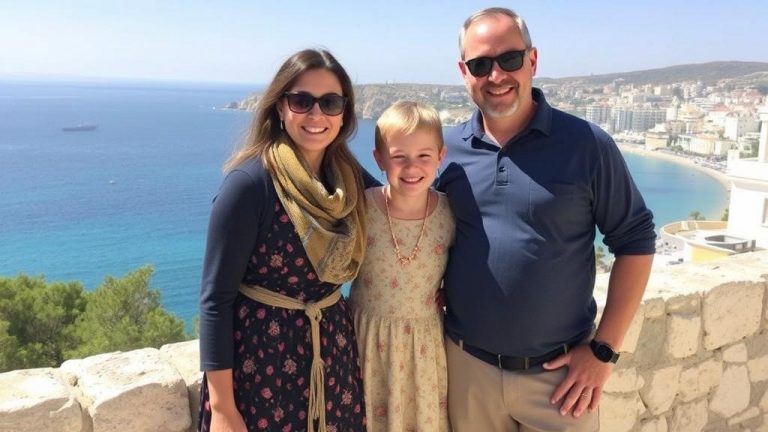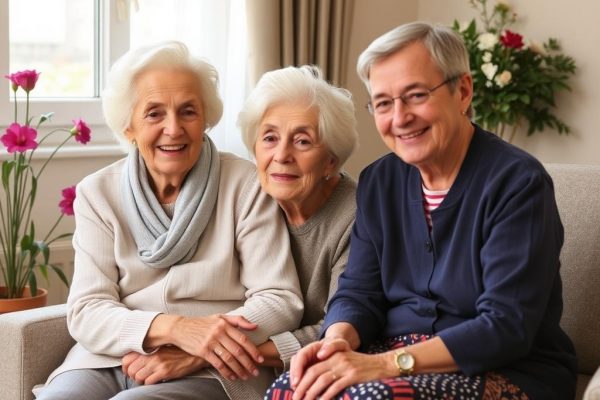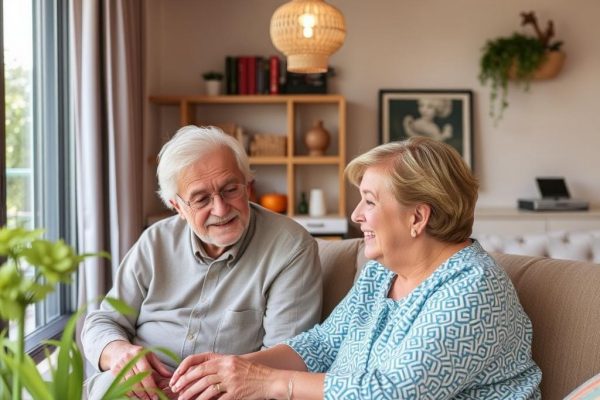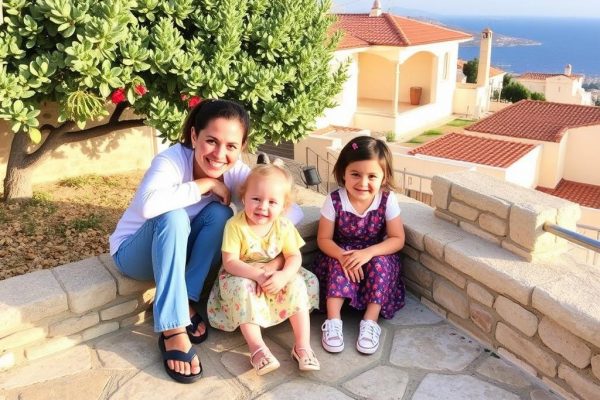Moving to a new country is an adventure that brings both excitement and challenges, especially when it involves integrating your family into its unique culture. Cyprus, with its rich history, vibrant traditions, and warm community spirit, offers a compelling environment for families seeking a fresh start or a deeper connection with the Mediterranean lifestyle. However, successful cultural integration Cyprus demands more than just learning a language or familiarizing oneself with local landmarks—it requires understanding and embracing family traditions Cyprus, engaging with local customs families uphold, and participating actively in holiday celebrations Cyprus enjoys.
This article explores the multifaceted nature of cultural adaptation when relocating with or raising a family in Cyprus. You will gain insight into how Cypriot families maintain their bonds through traditions, the importance of community practices, and ways to honor and participate in local festivals and customs. Additionally, we discuss practical approaches for newcomers to build relationships and facilitate a sense of belonging, ensuring that cultural integration becomes a rewarding and enriching experience for every family member.
The Foundations of Family Traditions Cyprus Embrace
At the core of Cypriot society is the family unit, often extending beyond the nuclear model into close-knit, multi-generational households. Family traditions Cyprus are vibrant and cherished, serving as a vehicle for transmitting values, histories, and identities. From regular Sunday lunches to collective observances of religious rites, these traditions form the backbone of interpersonal relationships and community coherence.
Understanding the depth of these family rituals can be a gateway for new residents. For example, the Cypriot practice of strong familial support manifests in frequent gatherings where food, stories, and music play central roles. Shared meals are far more than nourishment—they are moments to reaffirm loyalty and respect. In many families, elders are revered as repositories of wisdom, and their involvement in day-to-day decisions reinforces the enduring nature of family ties.
Moreover, family traditions Cyprus often intersect with the agricultural calendar and religious observances, reflecting the island’s historical ties to the land and Orthodox Christianity. Attendances at church services, celebration of saints’ feast days, and communal participation in local fairs all provide context and continuity. Integrating into this dynamic means not only respecting these customs but also engaging meaningfully with the cycles of community life.
Family traditions in Cyprus anchor personal identity and strengthen communal bonds through food, faith, and festivity.
Understanding and Participating in Local Customs Families Cherish
Local customs families adhere to in Cyprus can initially seem intricate or even unfamiliar to outsiders, but they provide an inviting framework for connection and acceptance. These customs often manifest in everyday behaviors, social obligations, and ceremonial events, forming a rich cultural landscape for newcomers to explore.
For instance, hospitality in Cyprus is legendary and typically expressed in inviting guests to share meals and conversations. New families can find themselves welcomed at neighbors’ homes with generous offerings of traditional dishes such as halloumi, souvlaki, and loukoumades. Accepting such invitations and reciprocating in kind is a vital step toward cultural adaptation.
Respect for elders, politeness, and patience also characterize Cypriot social interactions. Understanding nuanced expectations—like addressing elders formally and recognizing the importance of face-to-face communication—helps newcomers avoid common social faux pas.
Cypriots place great importance on communal celebrations such as weddings, baptisms, and name days. These events provide opportunities for families to connect deeply with their local environment while embracing local customs families prioritize, including music, dance, and traditional dress. Participating in these markers not only enhances social integration but also enriches the family’s cultural experience.
Engaging with local customs in Cyprus is a path to forging genuine relationships and gaining community trust.
Table: Examples of Local Customs Families in Cyprus Observe
| Custom | Description | Appropriate Engagement for New Families |
|---|---|---|
| Name Day Celebrations | Honoring the feast day of one’s patron saint with parties and gifts | Attend invitations; bring thoughtful gifts and participate in festivities |
| Sunday Family Lunch | Extended family gathering around a large communal meal | Accept invitations; learn key traditional dishes and dining etiquette |
| Religious Processions | Public ceremonies during major Orthodox holidays | Observe respectfully; inquire about meanings and significance |
| Wedding Customs | Involve music, dance, and symbolic rituals such as the “money dance” | Partake with enthusiasm; learn and respect ceremonial order |
Holiday Celebrations Cyprus Families Look Forward To
Holiday celebrations Cyprus boasts are a cornerstone of cultural life and a highlight for family participation. Each holiday offers a different window into the island’s heritage and social rhythms, providing new residents with opportunities to understand and celebrate alongside locals.
Easter is arguably the most significant holiday in Cyprus, deeply rooted in Orthodox Christian traditions. Families spend weeks preparing special foods like lamb roasted on a spit, red-dyed eggs symbolizing resurrection, and traditional sweets such as flaounes. The communal vigils, church services, and festive gatherings are not only religious ceremonies but also affirmations of shared cultural identity.
Other holidays, such as Christmas, also blend religious observance with unique local customs. For example, children go door to door singing carols while carrying decorated lanterns, a practice similar to wassailing but distinctively Cypriot. Public celebrations often include fairs, craft markets, and communal concerts that reinforce the spirit of togetherness.
Secular holidays, including Cyprus Independence Day and the Junkanoo-style carnival (Apokries), involve public parades, music, and dancing, highlighting the island’s diverse history and contemporary culture. Families have the chance to engage with these holidays by participating in community events, volunteering, or hosting gatherings of their own with neighbors and friends.
Holiday celebrations in Cyprus are more than festivity; they are living lessons in cultural heritage and family unity.
Strategies for Smooth Cultural Adaptation in Cyprus
Cultural adaptation is a gradual and often nonlinear process requiring patience, openness, and proactive engagement. Families moving to Cyprus benefit from strategies that foster mutual understanding and respect for local norms while maintaining their own identity.
Learning the Greek language, even at a basic conversational level, greatly eases cultural integration Cyprus. Language acts as a bridge to deeper social participation and demonstrates respect for local ways. Many local communities offer classes tailored for families and children, combining educational and social opportunities.
Building relationships with neighbors and local organizations is another critical step. Attending community events, enrolling children in local schools, and joining clubs or sports teams helps establish roots and shared experiences. In these settings, families can exchange stories, seek advice, and foster friendships that accelerate cultural adaptation.
Respecting and adopting family traditions Cyprus demonstrates—such as participating in religious observances or holiday celebrations—shows a willingness to integrate and enhances the family’s social capital. At the same time, balancing these with one’s own cultural identity promotes a healthy integration where diversity is appreciated rather than erased.
Practical adaptation also involves understanding local bureaucratic procedures regarding residency, schooling, and healthcare. Being informed reduces stress and allows families to focus on cultural and social aspects without avoidable interruptions.
Creating a New Family Legacy Within Cypriot Culture
The journey of integrating your family into Cypriot culture and traditions inevitably evolves into the creation of a new legacy that blends the past with the present. As families engage with local customs families keep alive and adapt them to their circumstances, a unique hybrid culture emerges that honors both heritage and new experiences.
Children growing up in Cyprus as part of multicultural families often serve as cultural interpreters and bridges between worlds. Encouraging them to learn about both their ancestral background and Cypriot traditions enables a sense of pride and belonging that prepares them for a globalized future.
Integration also opens avenues for families to contribute positively to Cypriot society, whether through local initiatives, cultural exchange programs, or entrepreneurial ventures that respect and enrich the island’s diversity. The reciprocal relationship between newcomers and the island community strengthens social cohesion and fosters mutual growth.
Building a family legacy in Cyprus means blending traditions into a vibrant, shared cultural future.
Finding Your Place: Embracing the Heartbeat of Cyprus
Integrating your family into the culture and traditions of Cyprus is not a task to be rushed but a gradual, immersive experience that transforms perceptions and binds hearts. The island’s distinct blend of history, faith, hospitality, and celebration offers newcomers fertile ground to nurture both individual and collective identities.
By embracing family traditions Cyprus proudly guards, participating genuinely in local customs families cherish, and engaging wholeheartedly in holiday celebrations Cyprus holds dear, families can move beyond being mere observers to becoming integral members of the community. This process also demands cultural adaptation strategies built on respect, dialogue, and openness.
The reward for such commitment is profound: a family that feels rooted in a new culture while preserving its essence, children who appreciate the richness of a bicultural upbringing, and parents who witness the unfolding of a shared, dynamic legacy. Cyprus is more than a destination; for many, it becomes home—a place where varying traditions meet and create a resilient, inclusive future.
True cultural integration is a journey of heart and mind, where families discover home beyond borders in Cyprus’ timeless traditions.
Frequently Asked Questions
- How can my family start adapting to Cypriot culture upon arrival?
Begin by learning basic Greek phrases, participating in local community events, and accepting invitations to family and neighborhood gatherings to build connections slowly but steadily. - What are some essential family traditions in Cyprus we should know?
Sunday family lunches, religious observances such as Easter celebrations, and name day festivities are key traditions that anchor Cypriot family life. - How important is participation in holiday celebrations Cyprus for integration?
Very important. Engaging in holidays like Easter and Christmas helps families understand local values and fosters a sense of belonging within the community. - Are there language resources for families to support cultural adaptation?
Yes, many local municipalities and organizations offer Greek language classes tailored for families and children to ease communication barriers. - How can children best balance their original culture with Cypriot traditions?
Encourage them to learn and practice both cultures, nurturing bilingualism and bicultural experiences that build confidence and identity resilience. - Can newcomers maintain their own culture while embracing Cypriot customs?
Absolutely. Cultural integration in Cyprus is about blending and respecting diverse heritages, not erasing them. - What role does hospitality play in integrating families into Cypriot society?
Hospitality is crucial—it opens doors and builds trust, making social integration more accessible through shared meals and genuine personal interactions.





